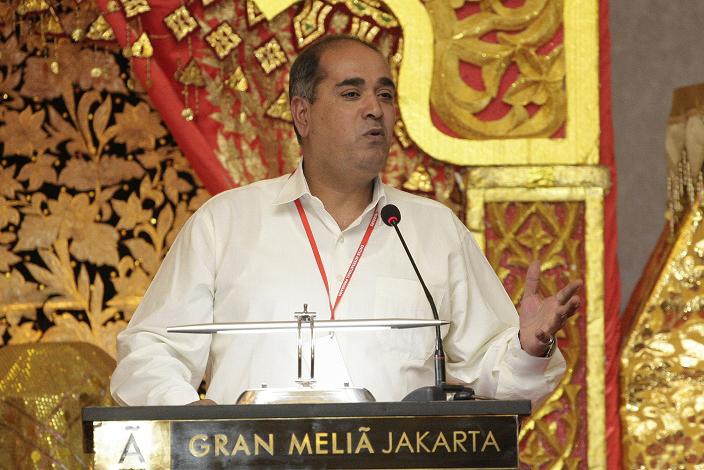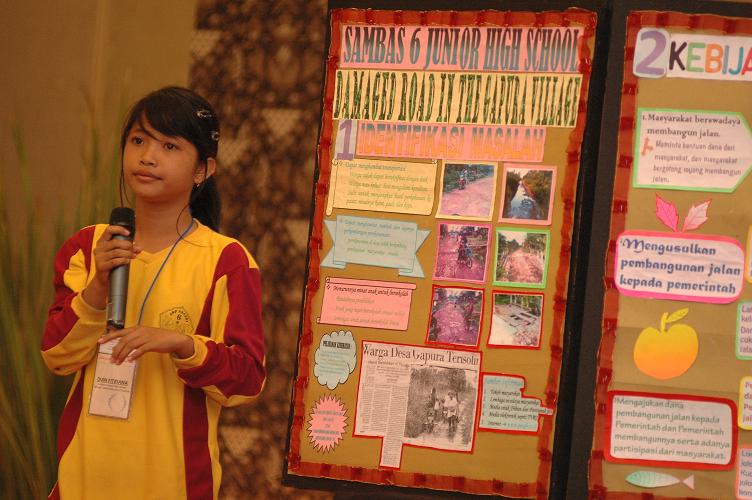

Each year the Center for Civic Education hosts an annual World Congress on Civic Education in a country that has shown great progress in education for democratic citizenship. Former Congresses have been held in Latvia, Bosnia and Herzegovina, Croatia, Northern Ireland, Russia, Mexico, Hungary, Jordan, Poland, Argentina, Morocco, South Africa and, most recently, Indonesia. The purpose of the World Congress is to enable both international and U.S. participants to exchange and share "best practices" in education for democracy programs. The sessions held during the Congress encourage interaction among participants in thematic workshops designed to strengthen civic education and civic culture. Highlights of the agenda include presentations on the civic education programs, projects, and activities administered by the Center’s partner in the host country.
2010 World Congress on Civic Education
The fourteenth World Congress on Civic Education, co-hosted by the Center for Civic Education and the Center for Civic Education Indonesia, was held in Jakarta, Indonesia, from July 23-27, 2010. Based on the theme of "Embracing Diversity and Building Unity through Civic Education,” the Congress brought together 250 civic educators from fifty-eight countries, twenty-seven U.S. states, and the District of Columbia to exchange and share best practices in education for democracy programs.
“This year’s conference builds on Indonesia’s national motto ‘Bhinneka Tenggal Ika’ and explores how civic education fosters tolerance among diverse people,” said Richard Nuccio, director of the Civitas International Programs. “These civic educators reach millions of students every year, teaching them how to become effective, informed, involved, and tolerant citizens. The conference gives these educators the opportunity to discuss their personal and national experiences, challenges and successes, and their vision toward the World Congress theme.”
The World Congress showcased the development of civic education programs in Indonesia, including lectures on the country’s political history and the nation’s educational system. Participants also learned about the civic education programs, projects, and activities currently administered in Indonesia by the Center for Civic Education Indonesia. Adsina Fibra, Program Director of the Center for Civic Education Indonesia welcomed the participants stating, “It is wonderful to have the chance to highlight the work of Indonesian civic educators to colleagues from across the world who share our commitment to improving the vitality of our country through civic education programs for our students at all levels.”
More than twenty-one thematic workshops and six plenary sessions were conducted during the four-day conference, with topics such as the Indonesian educational landscape, leadership and legacy in civic education, achieving social harmony through civic education, and teaching civics in times of crisis. Classroom educators, university professors, public officials, and nongovernmental organization representatives led the sessions and shared experiences from their home countries. On Saturday, July 24, Bambang Harymurti led a plenary session on Indonesia’s democratic emergence. The managing director of Tempo International Media said, “Civic education is important because a strong civil society serves as a pillar in a democratic system. The quality of a democracy is directly connected to the participation of its people.”
A highlight of the World Congress was the participation of Project Citizen students and teachers from the West Kalimantan and Banten provinces of Indonesia. Twenty-four junior high students involved in the Project Citizen program presented on problems they had identified in their communities with topics including, “Water Pollution by a Cosmetic Factory,” “Air Pollution by a Rice Mill,” “Human Trafficking in the Sambas Regency,” and “Illegal Gold Mining in the Sambas Regency.”
During the closing session, the Center for Civic Education presented the 2010 Penn Kemble award to Rahela Dzidic for her commitment to civic education in Bosnia and Herzegovina. Penn Kemble was an advocate for a culture of democracy who passed away in October 2005. The Center honors his legacy by presenting the Penn Kemble Award to a distinguished member of the Civitas network who reflects his commitment to civic education. Dzidic is an Education Training Specialist at the U.S. Embassy in Sarajevo.
History: Timeline of World Congress Themes, 2003-2010
Agenda: World Congress 2009, South Africa
Agenda: World Congress 2008, Morocco
Agenda: World Congress 2007, Argentina





